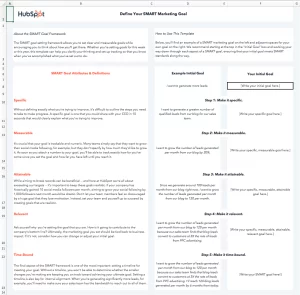A probationary period is a great tool for a business to use because they allow you to assess if a new hire is a good fit before making a long-term commitment.
During this time, it’s up to the employee to prove that they will be a success in their new role. It’s also up to you to back them by giving them every chance of being that success.
Is a probation period a good thing?
A probation period is a good thing to have if you consider that 18% of employees fail their initial 3 months in a new role. So, without a probation period that’s effective, a fifth of your workforce won’t be right, affecting your business’ performance and bottom line.
We all know it’s more expensive to get new staff in than it is to retain staff, so it’s even more important for you to ensure that your employees have every chance possible to pass their probation period.
Probationary Periods work best when the company has clear expectations of what an employee should be doing during their probation period and what will happen if they fail to meet expectations during this time. Do you have that in place?
What is a Probation Period?
A probation period is a trial period of employment. A new employee is then employed subject to the satisfactory completion of their probational period.
How long is a probation period?
This period of time is usually a fixed period of time at the beginning of the employment relationship, usually of three or six months duration.
New employees can use this to weigh up if your business is right for them, and you can use it to make sure they are a right fit for you.
How can I make the most of probationary periods?
An effectively managed Probation Period reduces your risk of hiring new employees who are poor permanent hires. During the probationary period, a new employee is exempt from standard notice period (and some other employment contract items) and can be let go without the usual difficulties and cost of this.
Why do you need a probation period?
Your recruitment process is unlikely to be perfect. No matter how thorough it is, sometimes you can never really do a proper assessment until someone is doing the job. And that’s exactly what a probation period allows you to do – before agreeing on a full contract.
If you didn’t have a probation period in place, you could end up in a binding contract with an employee in a job that isn’t fit for them.
And you can’t do much about it. So make sure your probation period process is solidified before you hire someone else.
What are the benefits?
Remember, the benefits of Probation Periods cut both ways.
You get to understand whether your new employees live up to the expectations (or not) from their interview. They get to find out whether you live up to your expectation as an employer and if they will be happy in the role.
What are an employee’s rights during probation?
A new employee is exempt from some contractual items. Most significantly, employees on probation can be let go without the standard notice period.
Employees usually have the right to notice of between one and 12 weeks depending on what your contract of employment states.
Other benefits, such as pension schemes, are not applicable at the beginning of probation too.
Employees on a probationary period won’t have worked for you long enough to qualify for unfair dismissal protection.
However, they are still protected against harassment and discrimination under the ‘protected characteristics’ such as gender, age, ethnicity, disability, religion and cultural background.
Protection is also provided against wrongful dismissal, which can occur during probation when an employer fails to follow the contractual dismissal process.
You need to set expectations from the start
You need to be very clear, and up-front with a new employee about their probationary period – on day one, if not before they start. How long will it be? What will it entail? What will they need to achieve?
Most of us like knowing what’s expected of us before we start something new, especially something as big as a new job. At the same time, they should be presented with a well-documented on-boarding plan, with the training and support that they’ll be given.
It’s important to remember that, although probation allows you to terminate new recruits more easily, the real aim of probation is to bring an effective employee on board. By doing the right things early on, you’ll increase the chances of success.
How long should the average probation period be?
Begin your new employee’s tenure by communicating their probation period. This is usually 3 or 6 months (but can vary role to role, hire to hire.)
The length of a probation period is usually based on the seniority of the role, with more senior roles tending to have a longer probationary period, because the risk of getting it wrong is much greater when there’s a higher salary.
However, our recommendation is to stick with 3 months. Even before 3 months, you’ll usually know whether it’s going to work out or not, especially if you’ve given them all of the help and support they need.
Whatever the probationary period is, it’ll need to be included in your contract of employment and stated clearly that this probation period must be passed before your employee will be offered a permanent role.
Why is setting objectives essential?
In being clear on your expectations, you should set objectives:
- What does success look like at the end of the probation period?
- How will this be measured?
- How will you determine if they pass or fail?
Well crafted, SMART objectives are so important. Without objectives, a new employee will not have a clear sense of priorities and will lack focus.

In our experience, not setting probationary objectives is where many businesses go wrong. A lack of clear objectives (and assessment against them), can lead the final decision to be down to gut feel, which is never satisfactory.
Without objectives and a clear understanding of their role, employees could also tell you that they aren’t interested in continuing employment. You need to be organised, and give the very best structure to any new hires from the get-go.
And remember, no new hire is ever a 100% fit. So, another great reason to set objectives is that it helps you to identify and put into place the training and support that your new hires need to be a success. And if that doesn’t work out – then that’s where your probation period comes in.
How should I manage employees during probation?
Problems during probation need addressing before the period is over. Unfortunately, many leave it to the end, then decide it’s not working out. That’s a waste of everybody’s time and effort.
Probation periods give you the opportunity to assess new recruits on the job, for three months (or more). And you need to do so at regular intervals, not just at the end, for example in a 3 month probation assess at 6 weeks and 12 weeks, in a six month probation assess at 1 month, 3 months and 6 months.
It’s common for employers to discover problems with new hires during this time.
- They don’t deliver the skills or performance they promised at interview or fail to meet their objectives
- They have poor timekeeping or attendance
- They are a bad fit in terms of personality or organisational culture
It’s important that you act. You may decide to provide feedback on how they need to improve. You may decide that they need further training or support.
You may decide that they’re not the right person (in hindsight) and the best course of action is to end their employment early.
The goal is to bring an effective employee on board, so if you decide to dismiss, you need to consider whether you have the right processes and practices to on-board them or, indeed, recruit them.
Can I extend a probation period?
The simple answer to this is, yes. An alternative to dismissal is to extend an employee’s probation period, thereby giving them the opportunity to improve.
There is no law limiting the length of employee probation periods.
However, you need to ask yourself the question whether, if they’ve been unable to convince you during their probation period of their worth, against (hopefully) a very clear set of objectives and with the right level of support, you need to consider carefully why you wish to keep them rather than let them go.
One reason to extend could be if they had some unplanned absence and you need more time to assess them and they need more time to achieve their objectives.
How should a probationary period end?
It must end with a review meeting. Unfortunately, in too many instances, through the lack of a process, and any final conclusion to it, an under-performing new hire (by default) becomes a permanent employee. And that’s where the trouble begins.
Reviewing performance at the end of a probation period
The review meeting should take place between the employee and their manager. At this meeting, you can assess how well your new employee is performing, what his or her training needs are, and whether they’re a good fit for your company.
Probation makes this possible — and you have the final decision to make whether to develop the employee or dismiss them.
We recommend a two way assessment process; ask the employee using structured questions how they think they have performed, what could they improve on and what further training is required.
At the same time the Manager can assess them against a number of areas relevant to the role including job-related tasks, customer service, absence, conduct, performance against objectives, and again areas to further improve and further train on.
Need help putting together processes around probation periods?
Get in touch and let’s talk about your probation periods and employee processes. Probation Periods and employment law can be difficult to manage, and the cost of getting it wrong is under-performance, high staff turnover and the constant cycle of new recruitment.
Our HR Consultants have years of experience to advise your company on probation periods. Give us a call for a free consultation.











